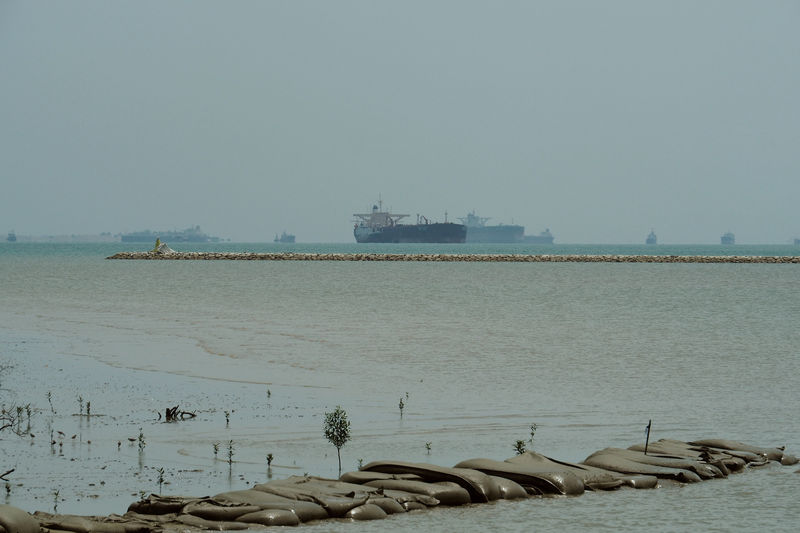By Florence Tan and Roslan Khasawneh
SINGAPORE (Reuters) - Traders seeking to store oil have put their plans on hold this week after prompt Brent crude futures surged against future months and made storage uneconomical, despite overwhelming supplies in the market, industry sources said on Tuesday.
Front-month Brent crude prices (LCOc1) have jumped since Friday on expectations that Saudi Arabia and Russia may strike a deal to cut output and support prices. [O/R]
That has created a growing disconnect with physical markets where traders are struggling with unsold supplies from previous months after the coronavirus pandemic destroyed demand.
"Demand has collapsed and supply is gushing," said Ashok Sharma, managing director of shipbroker BRS Baxi in Singapore. "The market is totally disconnected from supply and demand fundamentals."
The contango spread between the first and sixth month Brent crude futures
Prompt prices are lower than those in future months in a contango market, encouraging traders to sell oil later at higher prices.
However, the current spread is insufficient to cover freight costs for a Very Large Crude Carrier (VLCC) which was most recently chartered at $69,000 per day for six months, or about $1 a barrel daily, one of the sources said.
"The prompt contango is still there to help clear prompt barrels, but demand is just far too bad," a Singapore-based trader said. "It's the funds buying up these spreads, killing physical (markets) even more."
Crude supplies have started building in Asia since February when China went into lockdown to curb the coronavirus outbreak. Since then, a decline in demand accelerated with more countries locking down globally, while traders from all over the world have shipped more crude to Asia for China, a rare spot where demand is recovering.
Hefty supplies are weighing on spot markets with Middle East benchmark Dubai and Russian Sokol crude trading at their widest discounts ever. [CRU/M]
Some companies will have to store oil at a loss as they're unable to sell their cargoes even at depressed prices, a third trader said.
"It's no longer about numbers," he said. "If you are stuck with oil, you will need to store."
(GRAPHIC: Floating oil storage economics - https://fingfx.thomsonreuters.com/gfx/ce/nmopawqxpab/FloatingStorageApril72020.png)
